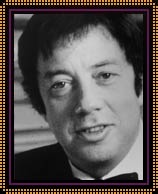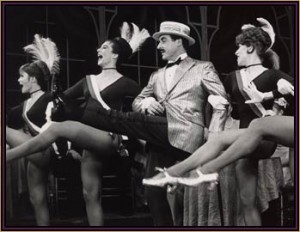 The following was written prior to Cy Coleman’s death in November 2004.
The following was written prior to Cy Coleman’s death in November 2004.
A classically trained child prodigy and concert pianist turned popular songwriter and Broadway tunesmith, Coleman made his Carnegie Hall debut at age seven and by his late teens had become somewhat of a society darling, performing jazz piano in sophisticated New York nightclubs. By the 1950s, he turned to composing pop standards (with lyricists Joseph McCarthy Jr., Bob Hilliard, and Hal David) for the likes of Frank Sinatra and Nat King Cole and ran his own New York nightspot, The Playroom.
Cy Coleman
- "Barnum"
- "I Love My Wife"
- "Little Me"
- "On the Twentieth Century"
- "Sweet Charity"
- Dorothy Fields
- Bob Fosse
- Michael Kidd
- Gwen Verdon
In 1966, Coleman wed his rhymic, upbeat jazzy scores to the words of veteran lyricist Dorothy Fields for the bouncy, insinuating score to “Sweet Charity” (based on Fellini’s film, “Nights of Cabiria” and filmed by Bob Fosse in his 1969 directorial debut) and in 1973 for “Seesaw,” the less than successful — but nonetheless catchy — musical version of William Gibson’s play “Two for the Seesaw.” Subsequently, he employed a variety of styles, from country and western to blues, for the intimate wife-swapping musical “I Love My Wife” (1977) and composed the bumptuous circus musical “Barnum” (1980), which also marked his debut as a Broadway producer.

Sid Caesar and dancers in "Little Me."
Coleman composed his first film score for FATHER GOOSE (1964), which included the song “Pass Me By,” and composed the scores for a trio of Sydney Lumet-directed features: GARBO TALKS (1984), POWER (1986), and FAMILY BUSINESS (1989).
Source: Excerpted from Baseline. BaselineStudioSystems — A Hollywood Media Corp. Company.
Photo credits: Photofest

